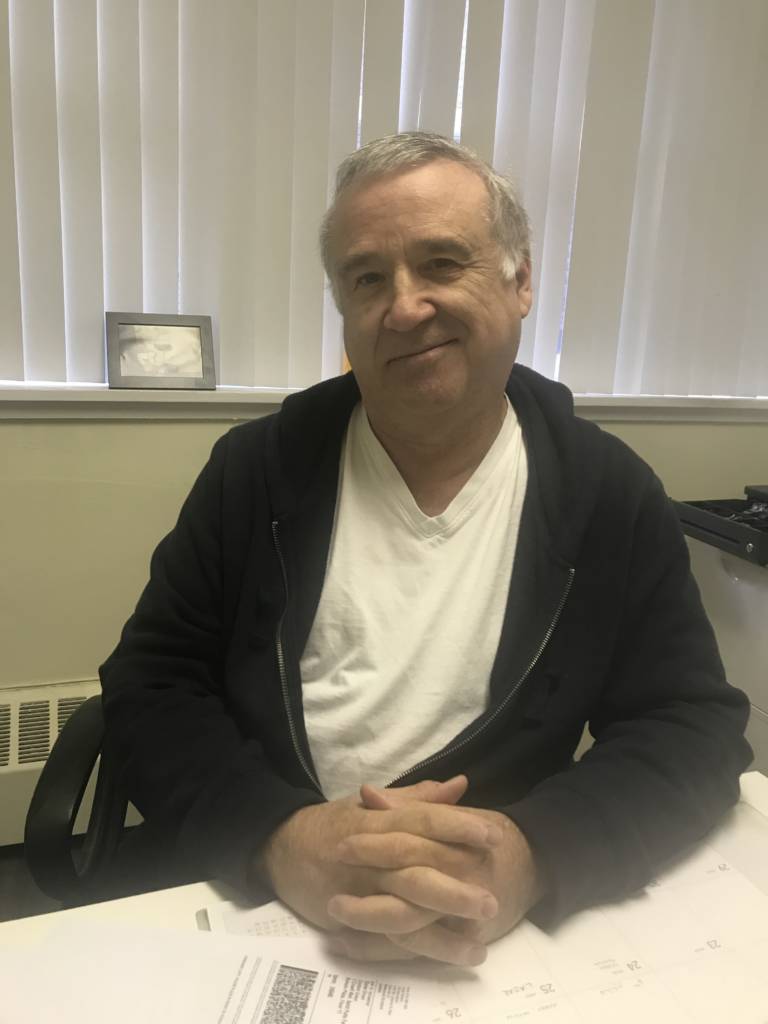The situation is complicated. But as is the case with most seemingly intractable disputes, Jewish and Israeli history can provide us with a number of insights and possible resolutions.
Canadians have experienced considerable upheaval and inconvenience over the past few weeks as several First Nation groups have blockaded rail lines and some roadways, protesting the building of pipelines in their territories.
The situation is complicated.
First, there are significant differences of opinions within the native population itself, meaning authorities are not quite sure with whom they should be negotiating.
Second, many Canadians are against the pipelines for environmental reasons so the natives have enthusiastic support from a sizeable portion of the population despite the negative effects of the protests.
Third, we have had generations of politicians and opinion-influencers reminding Canadians about our callous treatment of the native peoples so even though intercity passenger transportation and freight traffic have been completely disrupted, exacting a meaningful economic cost on the country and putting thousands of people out of work, many Canadians are averse to risking a violent confrontation with First Nations’ members.
Finally, we have a federal government that has proven itself unequal to the task of actually governing the entire country, retreating into bromides and meaningless gestures rather than acting affirmatively to address the situation. Complicated and no simple solution in sight.
But as is the case with most seemingly intractable disputes, Jewish and Israeli history can provide us with a number of insights and possible resolutions.
My first thought is that as the only people indigenous to the area of the Middle East that is now Israel, Jews should empathize with Canada’s native peoples. Like the Jews, they suffered through generations of upheaval and dislocation and they deserve respect and generosity. And like Jews, they have found themselves subject to chronic discrimination and deprivation so when they decide to stand up for themselves, we have a responsibility to listen to their grievances and make a serious effort at accommodation.
That said, I believe one of the most important lessons Canada’s aboriginal people could learn from the Israeli experience is related to the issue of territory. When the United Nations formulated their plan for the partition of the British Mandate area, Israel was meant to consist of a number of small enclaves, where Jews already comprised the majority of the local population, to be linked by a series of corridors. If the Arabs had accepted the plan, Israel may not have survived given the obstacles to forming a cohesive, economically-viable state from this geographical checkerboard.
But the Arabs could not bring themselves to allow the Jews even such a paltry homeland and they went to war in an attempt to destroy Israel. They failed and Israel was able to fill in many of the territorial gaps, leading to a stronger, more defensible country and 75 years of stunning achievement.
Right now, there are hundreds of Indigenous communities scattered across Canada, with none of them being sufficiently large to foster development of or participate in a diverse and modern economy. Perhaps their ancestors were satisfied making a subsistence living hunting and fishing, but I don’t believe that this is the future most native peoples wish for their children.
Time to trade territory with Canada: expand some existing aboriginal territories (giving priority to those areas that possess potentially lucrative natural resources rather than Arctic tundra), relocate people from areas that have diminishing economic prospects and create local ruling councils that will represent the interests and needs of the individual people.
Israel’s Experience Can Be Instructive
There are also compelling economic principles which suggest that Canada’s natives would be better-served through fewer but larger communities, and again, Israel’s experience can be instructive. Israel works to some degree because there is a substantial number of people living in close proximity to each other, allowing them to benefit from economies of scale, cluster productivity, streamlined governance structures, and the necessary critical mass to trigger economic and social development.
Can these new Indigenous communities comprising multiple cultures and histories survive and thrive?
Again, Israel’s experience offers an intriguing and relevant precedent. Israel has absorbed millions of immigrants over the past 75 years. They may have all been Jewish, but they spoke different languages and encompassed vastly different cultures, ethnicities, races and religious practices.
Nevertheless, they have been successfully absorbed into a country where they are able to maintain their unique character while still being part of a cohesive, unified people.
I have faith that disparate First Nations groups could also find common values and interests that would allow them to similarly prosper and progress.
The second problem for Canada’s First Nations is a weak and sometimes incoherent power structure, with multiple voices (and conflicting interests) purporting to speak for the natives. When hundreds of separate voices make demands that are lacking in practicality and/or consistency, it’s much easier for the government to ignore them. I believe some form of an Indigenous People’s Parliament is necessary and overdue.
Let every First Nation select a representative for this body, meet whenever necessary to discuss issues affecting their communities and formulate policies and proposals to present to Canada’s government. Yes, there will be a divergence of opinions and the interests of individual communities may not be aligned, but a deliberative body would be able to reach compromises that would be in the best overall interest of First Nations.
Here, some may suggest that Israel may not be the best example for Canada’s First Nations to follow, given Israel’s chaotic political situation. I would argue that Israel’s ‘pure’ democracy is exactly what the doctor ordered because although Israelis will scream themselves hoarse arguing over tactics and policies, they almost always eventually find common ground on the issues that matter. I would expect very similar deliberations in a Native Knesset, with passionate differences of opinion but a commitment to find solutions that best serve their communities.
The third major issue for Canada’s indigenous people is their historic dependence on governmental handouts for their survival, and this nanny-state paradigm has led to a myriad of social problems. It is incumbent upon Canada to provide First Nations with a one-time disbursement of the financial resources to ensure first-world housing and education in their communities and to encourage businesses across Canada to promote entrepreneurship in these communities through financial support, apprenticeships or whatever it takes to have these people standing on their own two feet within a generation.
Israel followed a near-socialist model in its early years, with a paternalistic government that ensured some minimum level of subsistence but Israel’s dynamic growth only began when entrepreneurship and individual initiative were unleashed and encouraged. I have faith that Canada’s aboriginal people can thrive if given the same tools and freedom.
A Suggestion for Israel
At the very least, given 150 years of serial failures on Canada’s part to deal with aboriginal issues and needs, is it not time for a new approach?
Finally, I have a suggestion for Israel. The country has provided financial aid and practical expertise to a number of developing nations, and I believe Canada’s indigenous peoples are worthy of that same kind of support. I would like to see the Israeli government reach out to Canada’s First Nations to offer assistance in the areas of governance, educational systems, cultural protection, business creation and development, economic diversification and financial self-sufficiency.
Perhaps the Canadian government would be offended by such a (native) people-to-people approach ,but given Canada’s lack of support for Israel in the UN, Israel should not lose any sleep over Canada’s sensibilities.
Do You Love Israel? Make a Donation - Show Your Support!
Donate to vital charities that help protect Israeli citizens and inspire millions around the world to support Israel too!
Now more than ever, Israel needs your help to fight and win the war -- including on the battlefield of public opinion.
Antisemitism, anti-Israel bias and boycotts are out of control. Israel's enemies are inciting terror and violence against innocent Israelis and Jews around the world. Help us fight back!























